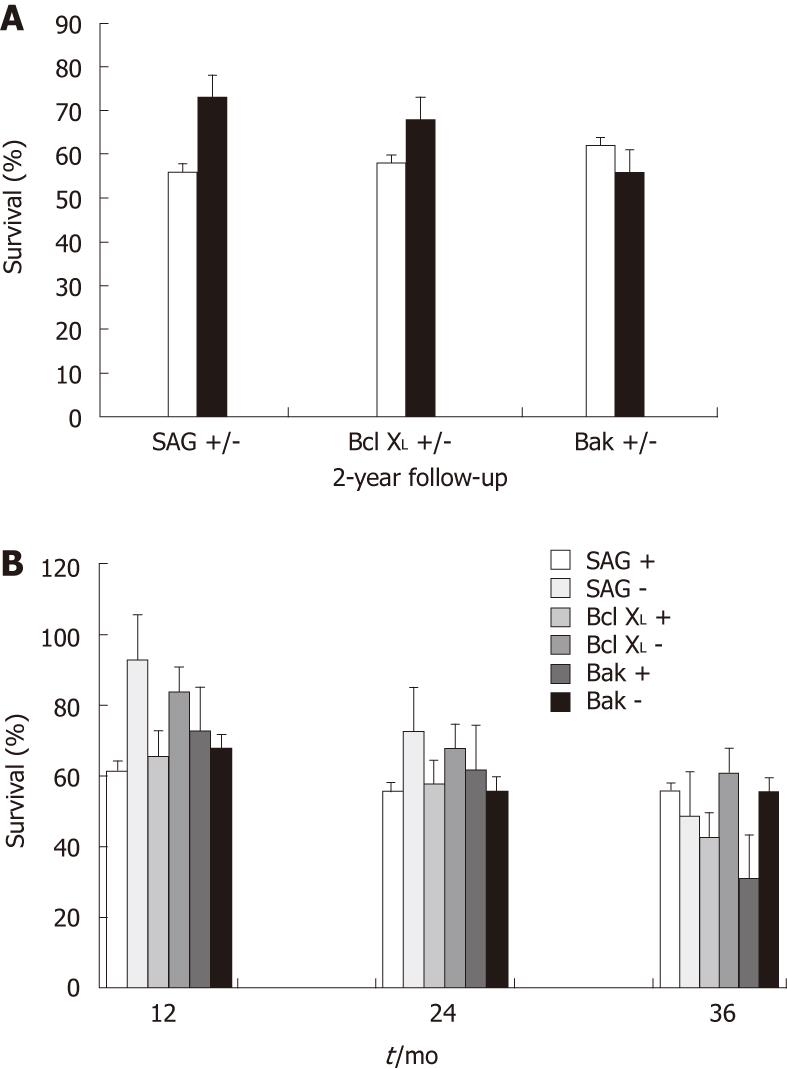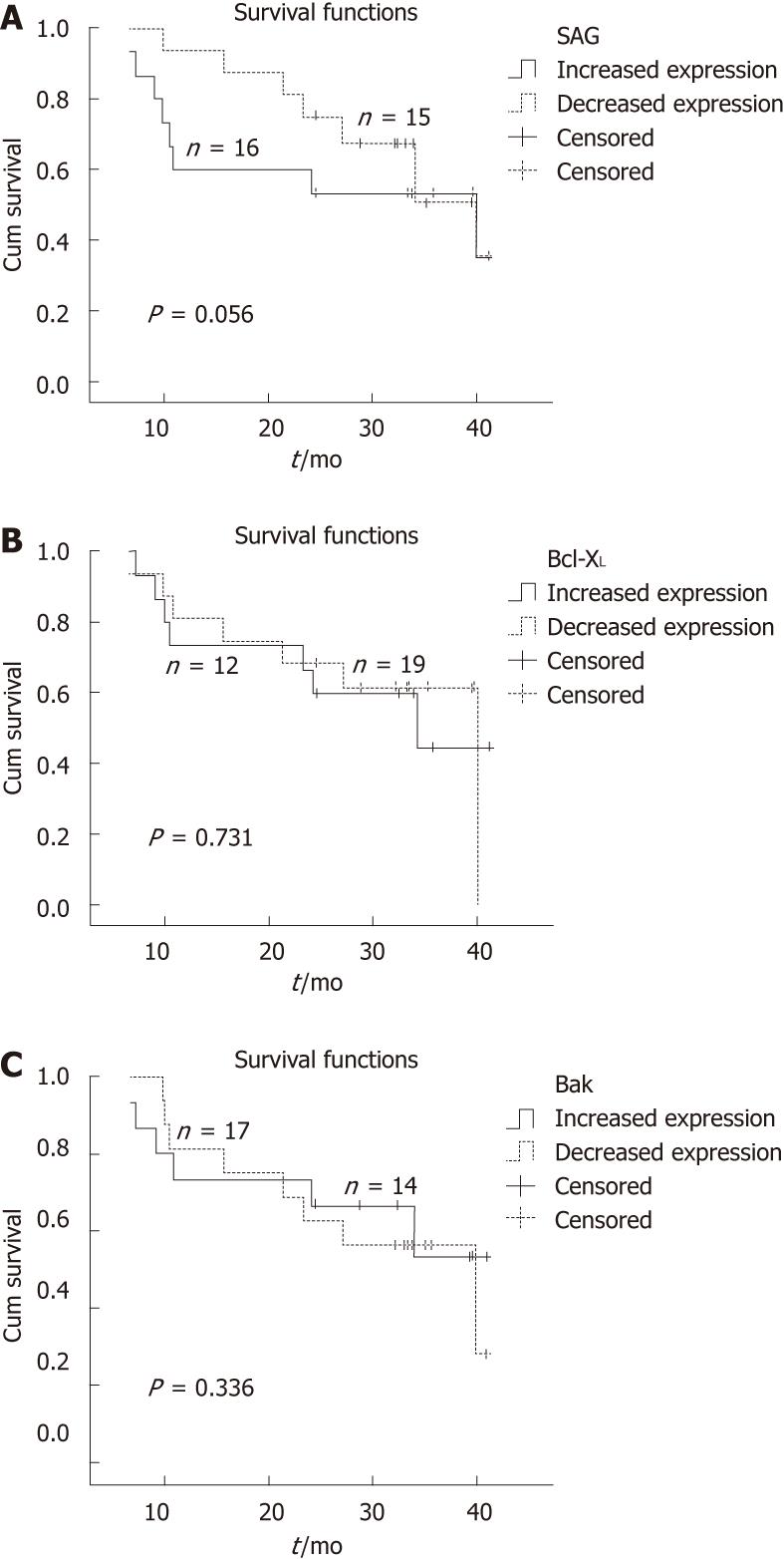©2011 Baishideng Publishing Group Co.
World J Gastroenterol. Nov 28, 2011; 17(44): 4905-4910
Published online Nov 28, 2011. doi: 10.3748/wjg.v17.i44.4905
Published online Nov 28, 2011. doi: 10.3748/wjg.v17.i44.4905
Figure 1 Dependence between gene expression and outcome of patients.
A: Comparison for 2-year survival; B: Comparison after 1, 2 and 3 years of follow-up. All values were normalized with respect to β-actin expression. Calculations were based on the Pfaff method. +/- signs correspond to the subjects with increased or decreased expression with respect to their non-tumor tissues, respectively. SAG: Sensitive-to-apoptosis; Bcl-XL: B-cell lymphoma-extra large; Bak: Bcl-2 homologous antagonist/killer.
Figure 2 Kaplan-Meier survival curves with univariate log-rank comparisons at the end of 3 years for the three genes of interest.
A: Sensitive-to-apoptosis; B: B-cell lymphoma-extra large; C: Bcl-2 homologous antagonist/killer. Metastasis was the major cause of death (seven cases). Information was not available for four of the patients. Other reasons of death were variable, but included advanced age, Alzheimer’s disease and stroke. The median values for high- and low-level SAG expression in the study population were 24.5 and 30.4 mo, respectively. SAG: Sensitive-to-apoptosis gene, Bcl-XL: B-cell lymphoma-extra large, Bak: Bcl-2 homologous antagonist/killer.
- Citation: Ozden SA, Ozyurt H, Ozgen Z, Kilinc O, Oncel M, Gul AE, Karadayi N, Serakinci N, Kan B, Orun O. Prognostic role of sensitive-to-apoptosis gene expression in rectal cancer. World J Gastroenterol 2011; 17(44): 4905-4910
- URL: https://www.wjgnet.com/1007-9327/full/v17/i44/4905.htm
- DOI: https://dx.doi.org/10.3748/wjg.v17.i44.4905














